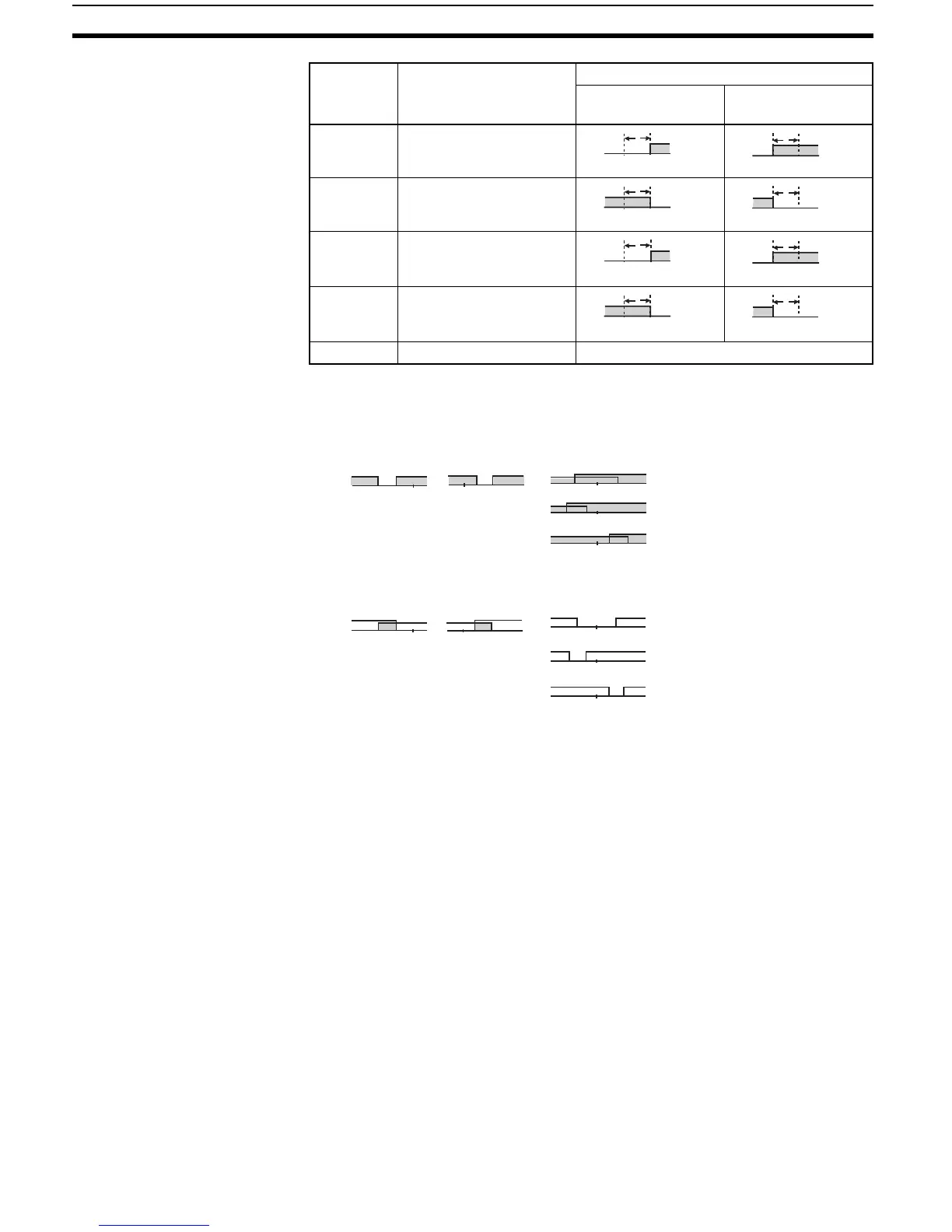48
Alarm Outputs Section 3-9
Note (1) With set values 1, 4, and 5, the upper- and lower-limit values can be set
independently for each alarm type, and are expressed as “L” and “H.”
(2) Set value: 1 (Upper- and lower-limit alarm)
(3) Set value: 4 (Upper-and lower- limit range)
(4) Set value: 5 (Upper- and lower-limit with standby sequence)
• For the upper-and lower-limit alarms in cases 1 and 2 above, the alarm
is always OFF if upper- and lower-limit hysteresis overlaps.
• In case 3, the alarm is always OFF.
(5) Set value: 5 (Upper- and lower-limit with standby sequence)
• The alarm is always OFF if upper- and lower-limit hysteresis overlaps.
• Set the alarm type independently for each alarm in the “alarm 1 to 3 type”
parameters in the initial setting level. The default is 2 (Upper-limit alarm).
8 Absolute-value upper-
limit
9 Absolute-value lower-
limit
10 Absolute-value upper-
limit with standby
sequence
11 Absolute-value lower-
limit with standby
sequence
12 LBA (alarm 1 type only) ---
Set value Alarm type Alarm output operation
When alarm value
X is positive
When alarm value
X is negative
X
ON
OFF
0
X
ON
OFF
0
ON
OFF
X
0
ON
OFF
X
0
X
ON
OFF
0
X
ON
OFF
0
ON
OFF
X
0
ON
OFF
X
0
LH
H < 0, L > 0
|H| < |L|
SP
LH
H > 0, L < 0
|H| > |L|
SP
LH
H < 0, L < 0
SP
LH
H < 0, L > 0
|H| ≥ |L|
SP
LH
H > 0, L < 0
|H| ≤ |L|
SP
Case 1 Case 2 Case 3 (Always ON)
LH
H < 0, L > 0
|H| < |L|
SP
HL
H > 0, L < 0
|H| > |L|
SP
LH
H < 0, L <
SP
L
L
H
H
H < 0, L > 0
|H| ≥ |L|
SP
SP
H > 0, L < 0
|H| ≤ |L|
Case 1 Case 2 Case 3 (Always OFF)
